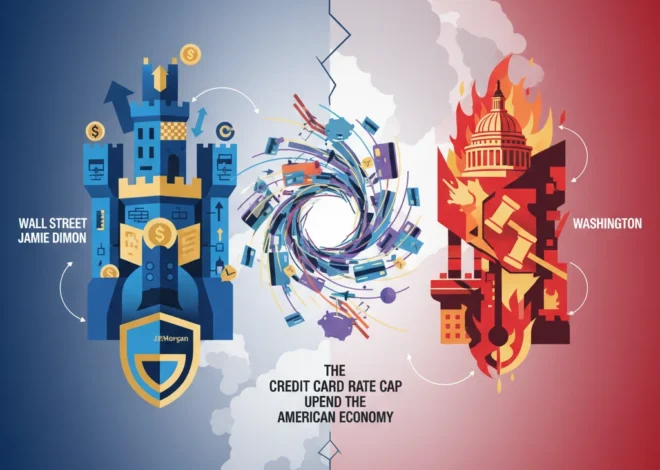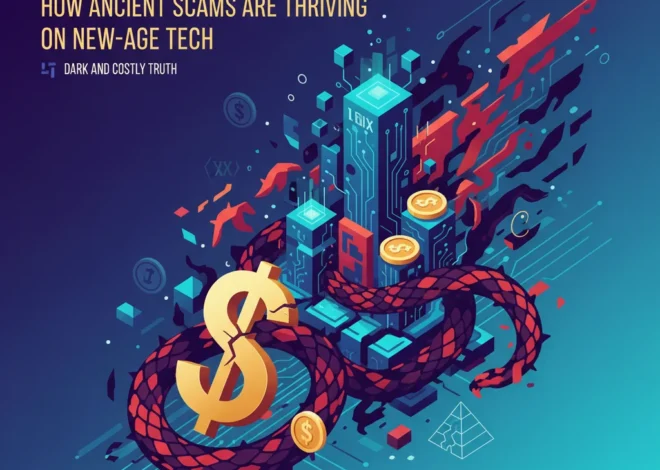The Pardon That Shook the Tech World: Analyzing the Ripple Effects of Trump’s Pardon of Binance’s CZ
It’s the kind of headline that forces a double-take, a news alert that feels more like a plot twist from a political thriller than a real-world event. Yet, the report is stark: Former President Donald Trump has pardoned Changpeng Zhao (CZ), the founder and former CEO of Binance, the world’s largest cryptocurrency exchange. According to a brief from the BBC, this move absolves the crypto titan who was sentenced to four months in prison in 2024 after pleading guilty to violating U.S. money laundering laws.
This single act of executive clemency is more than just a legal maneuver; it’s a seismic event at the volatile intersection of technology, finance, and global politics. It’s a move that will send shockwaves through the entire digital asset industry, from Wall Street trading desks to the bedrooms of freelance developers programming the next decentralized application. For entrepreneurs, tech professionals, and startups, this pardon isn’t just news—it’s a fundamental reshaping of the regulatory landscape. What does this mean for the future of innovation? Does it signal a new era of political patronage for the tech elite, or does it plunge the industry into even greater uncertainty? Let’s unpack the layers of this unprecedented decision.
The Road to a Pardon: A Quick Recap of the Binance Saga
To understand the gravity of the pardon, we have to revisit why Changpeng Zhao was facing prison time in the first place. This wasn’t a case of simple corporate mismanagement; it was a landmark crackdown by the U.S. government on a global behemoth that, for years, operated in the gray areas of international finance.
Binance, under CZ’s leadership, grew at an explosive pace, becoming the go-to platform for millions of crypto traders worldwide. But its “move fast and break things” ethos eventually collided with the rigid framework of U.S. financial law. The Department of Justice investigation revealed a startling reality: Binance had prioritized growth over compliance. The charges were severe, culminating in a historic $4.3 billion settlement in late 2023. The core of the case wasn’t that Binance was a criminal enterprise, but that it willfully failed to implement an effective Anti-Money Laundering (AML) program as required by the Bank Secrecy Act.
This failure had real-world consequences. The DOJ detailed how the lack of controls on Binance allowed illicit actors—including terrorist groups like al-Qaeda and ISIS, ransomware attackers, and darknet criminals—to launder hundreds of millions of dollars. CZ’s guilty plea and his agreement to step down as CEO were part of a deal to save the company itself from collapse. His four-month sentence was seen by many as relatively lenient, a testament to his cooperation. This pardon, however, wipes the slate clean, at least for CZ personally.
The Shadow War: Did China Steal UK Secrets, and What Does It Mean for Your Startup?
Why Now? Deconstructing the Political Calculus
A presidential pardon is one of the most absolute and controversial powers a U.S. president wields. It’s often used to correct perceived injustices or as a gesture of mercy. In this case, however, the move appears deeply strategic, a calculated play aimed at the heart of the current political and cultural discourse.
A pardon for a figure like CZ can be interpreted as a powerful signal to several key constituencies:
- The Pro-Crypto Base: The cryptocurrency community is a diverse, digitally-native, and often libertarian-leaning demographic that is increasingly seen as a potent political force. By pardoning CZ, Trump positions himself as a champion of the industry, a defender of financial innovation against the perceived overreach of a hostile regulatory “deep state.”
- The Tech and Startup World: The broader tech industry, particularly venture capitalists and startups, often bristles under heavy regulation. This pardon sends a message that a Trump administration might favor a more hands-off approach, prioritizing rapid innovation over cautious oversight.
- A Statement on Global Competitiveness: Proponents of the pardon might argue that the aggressive prosecution of a global tech leader like CZ harms American competitiveness. The narrative becomes one of protecting a visionary entrepreneur who built a revolutionary platform, rather than punishing a CEO who flouted U.S. law.
This action fundamentally reframes the debate from a legal issue of compliance to a political one of ideology, pitting the forces of disruptive technology against the established financial order.
The Ripple Effect: What This Means for Tech and Finance
The consequences of this decision will be felt for years, impacting everything from market dynamics to the very software developers write.
1. A New Era of Regulatory Uncertainty
The most immediate impact is a massive injection of uncertainty into the regulatory environment. For years, the mantra for crypto and fintech startups has been “compliance is key.” This pardon turns that wisdom on its head. The new question becomes: is legal compliance less important than political allegiance?
This could lead to a chilling effect where companies become hesitant to engage with regulators, opting instead to hedge their bets on political outcomes. It complicates the business models of RegTech (Regulatory Technology) firms that provide SaaS solutions for AML and KYC (Know Your Customer) verification. If the ultimate backstop is a political pardon, the incentive to invest millions in robust, automation-driven compliance systems is diminished.
2. The Future of Cybersecurity and Financial Crime
At its core, the Binance case was about cybersecurity—specifically, the security of the global financial system from illicit actors. The company’s failure was its inability to police its own massive, cloud-based platform. A pardon for its founder could be perceived as downplaying the severity of financial cybercrime.
On the other hand, this could spur a new wave of decentralized compliance tools. If centralized platforms are subject to the whims of political leaders, perhaps the solution lies in building systems where compliance is embedded into the code itself through smart contracts and transparent protocols. This is where advanced artificial intelligence and machine learning algorithms could play a crucial role, creating trustless systems for monitoring transactions without a central point of failure or political influence.
To put the Binance settlement in perspective, here’s how it compares to other major corporate fines related to financial misconduct:
| Company | Year of Settlement | Penalty Amount | Primary Violation |
|---|---|---|---|
| BNP Paribas | 2014 | $8.9 Billion | Violating U.S. sanctions against Sudan, Iran, and Cuba (source) |
| Binance | 2023 | $4.3 Billion | Anti-Money Laundering & Sanctions Violations |
| Credit Suisse | 2014 | $2.6 Billion | Conspiring to aid tax evasion |
| JPMorgan Chase | 2013 | $2.0 Billion | Bank Secrecy Act violations related to the Madoff scandal |
While Binance’s fine is substantial, it exists within a history of massive penalties levied against traditional financial institutions, highlighting that the crypto industry is now being held to the same, if not a more intense, standard.
The Thirsty Engine of Innovation: Is AI's Water Usage a Ticking Time Bomb?
Implications for Developers, Entrepreneurs, and the Future of Software
If you’re an entrepreneur raising a seed round for a new fintech app or a developer programming a DeFi protocol, this news changes your world.
- The Risk Calculus Has Shifted: The risk for startups is no longer just technical or market-based; it’s now overtly political. Founders must now consider the political landscape as a core part of their business strategy. This might mean aligning with political factions or lobbying in ways previously reserved for behemoths in banking and energy.
- A Fork in the Road for Development: The developer community may split. One camp will double down on building fully decentralized, censorship-resistant systems that are, by their nature, outside the control of any single government. The other camp will focus on building hyper-compliant, centralized platforms that can win the favor of regulators and, potentially, politicians.
- The Rise of AI-Powered Governance: The need for transparent and impartial governance is now greater than ever. This could accelerate research and development into using AI and machine learning not just for transaction monitoring, but for decentralized autonomous organizations (DAOs) and on-chain governance. Imagine an automated system that enforces compliance rules algorithmically, removing the human element that is susceptible to both error and political pressure. This is where cutting-edge software development meets real-world governance.
The Console Killer in Your Pocket? Why the Handheld PC Revolution is About More Than Just Gaming
Conclusion: A New Chapter or a Dangerous Precedent?
President Trump’s pardon of Changpeng Zhao is a landmark decision that transcends the fate of one man. It is a bold statement that redefines the relationship between the disruptive world of technology and the established powers of government. It throws gasoline on the already raging fire of debate about the future of finance, regulation, and innovation.
For the tech professionals, developers, and entrepreneurs who are building that future, the path forward has become murkier. The pardon can be seen as a liberating act, freeing innovators from the shackles of bureaucracy. Or, it can be viewed as a cynical political ploy that undermines the rule of law and rewards those who place growth above all else. Perhaps the most enduring legacy of this decision will be the questions it forces us all to confront: What is the right balance between innovation and responsibility? And in the digital age, who gets to write the rules?


